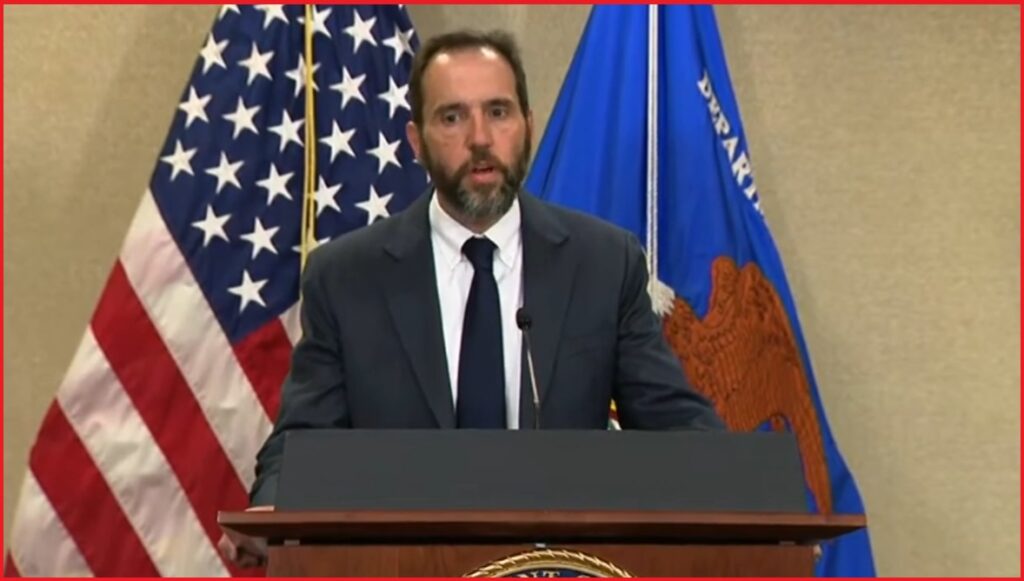Jack Smith, Andrew Weissmann and Norm Eisen Are Big Mad at Judge Aileen Cannon Overseeing the Trump Documents Case
Before getting into the weeds, here’s the big picture baseline. All documents and records created within the executive branch are created for the benefit of the head of the Executive Branch, the president.
There is no entity, organization, assembly, institution, person or individual, above the President of the United States. The president holds absolute power and absolute immunity. Everyone within the executive branch works at the pleasure of the president, and all work products are created for his administration. This is the plenary power of the president.
 The entire documents case in Florida rests on the principle that another entity supersedes the president within the executive branch. Some unknown, unnamed bureaucracy can override the president and decide for themselves what would be called a “presidential record” and what would be called “classified information.”
The entire documents case in Florida rests on the principle that another entity supersedes the president within the executive branch. Some unknown, unnamed bureaucracy can override the president and decide for themselves what would be called a “presidential record” and what would be called “classified information.”
Jack Smith, Norm Eisen (pictured left, red tie) and Andrew Weissmann each argue that some other entity rests atop the president and can make this decision.
Judge Aileen Cannon has not determined which constitutional argument is correct, and has told the parties to create jury instructions both ways. The Lawfare crew of Smith, Eisen and Weissmann are going bananas.
[…] Cannon’s first scenario would allow the jury to make a factual determination about whether a former president deemed a record to be personal or official under the PRA. That is nonsensical – presidents are not allowed to designate official records as personal ones, so there is no factual issue for a jury to resolve.
A different set of laws govern the classification process and the rules for handling highly sensitive classified documents — not the PRA. They include Executive Order 13526. One of the authors of this column (Eisen) helped write that executive order. The 11th Circuit has already established that those rules fully apply to former presidents.
Cannon seems to think that the PRA somehow supersedes the executive order and the rest of federal law pertaining to the handling of classified materials. It does not. On the contrary, the PRA defines “personal records” as “all documentary materials … of a purely private or nonpublic character which do not relate to or have an effect upon the carrying out of the constitutional, statutory, or other official or ceremonial duties of the President.” That cannot possibly include highly classified battle plans, nuclear secrets and the other official documents at issue in this criminal prosecution.
That rules out Cannon’s first hypothetical. But as Smith points out in his filing, the second alternative is just as bad. She made up a legal standard, asking both sides to assume that Trump could have deemed a record personal by simply not including it with the records transmitted to the National Archives and Records Administration at the end of his term. If this were true, the mere fact that Trump took the documents with him from the White House would inherently turn them into personal records.
Of course, Trump leaped at this interpretation, fashioning proposed jury instructions that would inevitably result in his acquittal. But, as Smith noted, this approach has no basis in the law — or the facts. Even Trump himself does not seem to have considered classified documents personal after he left the White House, as evidenced in an audio recording CNN obtained last year in which Trump, during a conversation at his Bedminster, New Jersey, estate in 2021, discussed documents remaining classified even though he took them with him upon leaving office. Smith hits this point hard, arguing that Trump’s position that records are personal was “invented” when the controversy over the documents began to emerge in February 2022, over a year after Trump left the White House. (read more)





Post a Comment